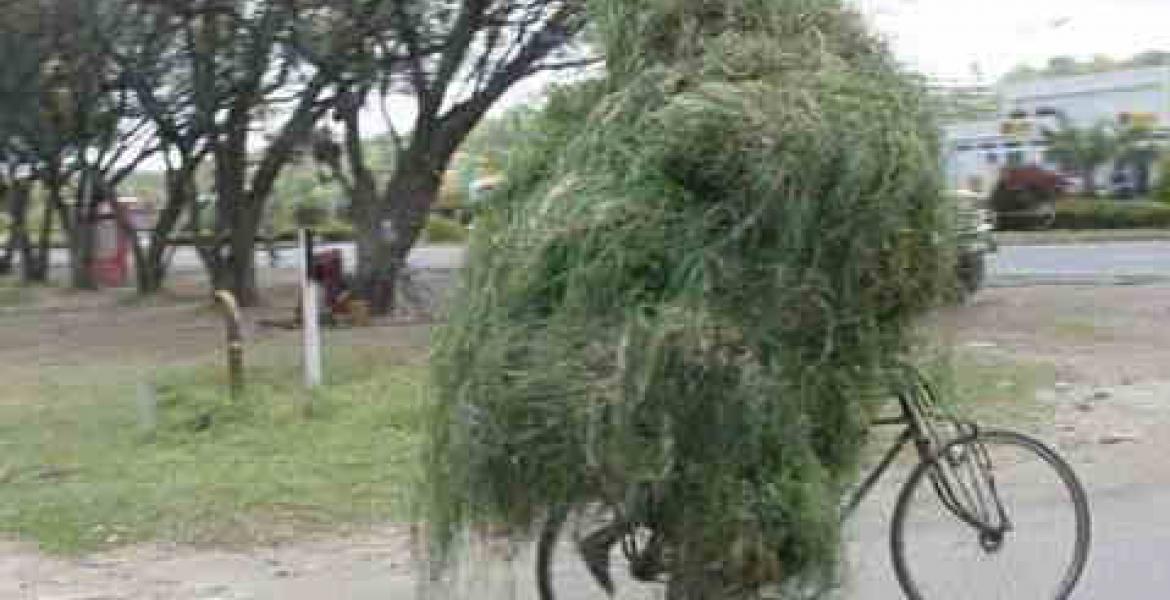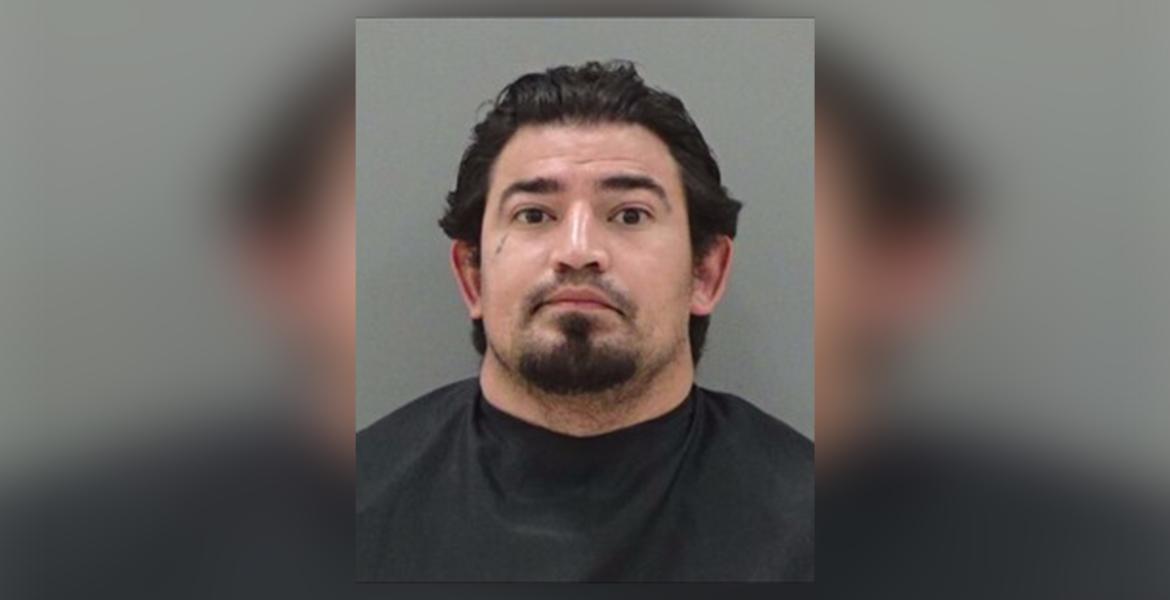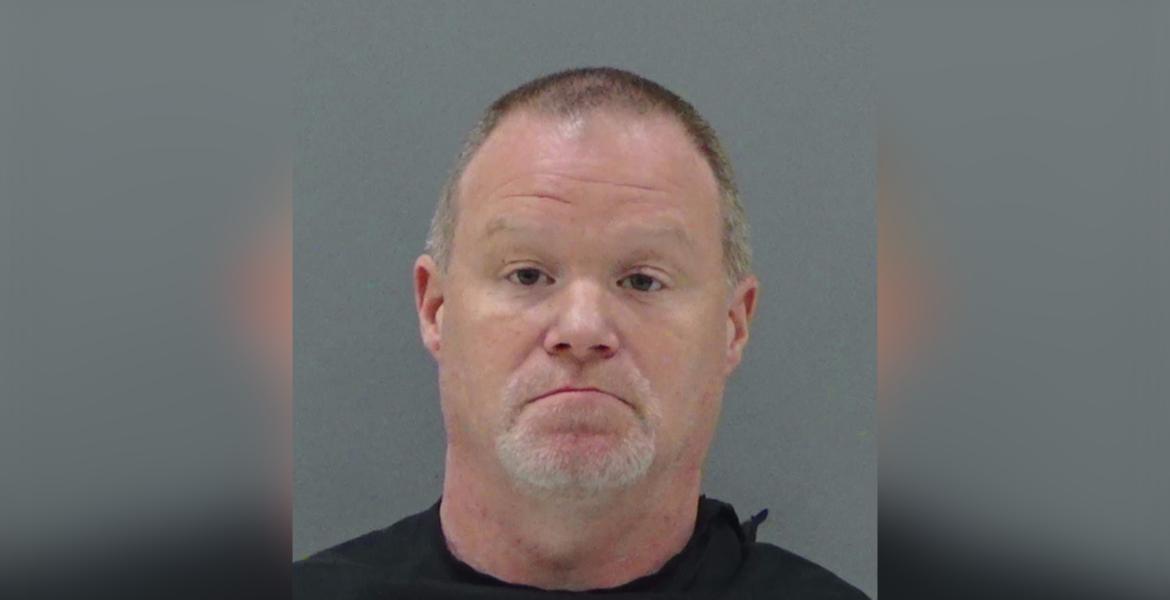It’s a cold west Texas night. Crime is low in the wintertime, but it doesn’t change his objective. Officer Matt Hawthorne hits the streets of Sector 3 roughly an hour before dusk, his intention the same as high traffic nights: he’s here to make a difference.
Cruising known problem areas, he’s looking for everything: suspicious-looking characters walking the streets, who avert their eyes as his patrol car passes, vehicles whose drivers make snap turns when he’s spotted in the rearview. There’s an old man walking a dog, a few teens laughing as they meander down the avenue, a guy wearing shades although the sky is gray and the sun is hiding.
Tall houses with maintained facades line the streets of Santa Rita. The man is walking with the flow of traffic, a violation, and worth a second look. Backpack slung over his shoulder, long, pleather jacket hanging loosely from his shoulders, the man stops and reacts friendly enough as Hawthorne comes to a stop behind him, lights flashing.
‘Are you aware you’re walking on the wrong side of the street?’ he asks the man, who appears somewhat nervous, but is forthcoming enough.
‘No,’ the man says. He’s been told the opposite by a friend, who indicated that walking with the flow of traffic was indeed the proper method.
Hawthorne asks where he’s coming from and where he’s going, if he has any known warrants out and if he’s from the area. The man responds honestly. He’s just been released from jail where he was sitting out a warrant, and shouldn’t have any others. He was originally arrested for marijuana and has been doing laundry at a nearby salon, the clothes are in his backpack. He can take a look.
Hawthorne thanks the man and returns to the car to run his license. All clear. Nothing active and his story checks out. Following a search of his person and belongings, the man is sent on his way, this time on the other side of the street.
Not everyone is stopped, Hawthorne explains, but random checks are necessary. He spends 40 hours a week patrolling these streets, four 10-hour shifts in a row, and he knows what's to be expected in the neighborhoods and when something deviates.
He drives past the park, points to it out the driver's side window. In the evenings, the dim lighting fosters a culture of drug use and he's been hitting it hard lately. The traffic, he said, has dropped some. There are known areas where problems occur, but the other areas are just as important: he's responsible for the whole of sector 3, not just a block of it.
Sector Policing
San Angelo is divided into four policing sectors, and with the exception of number four, the patrol method is essentially the same. Crime is spread fairly evenly throughout the city, but certain types of crime do seem to occur in certain areas. In Sector 3, it’s burglaries, thefts and car wrecks.
“We have a lot of property crime in Sector 3,” says Sergeant Ken Solsbery, the sergeant in charge of the Sector 3 Bravo shift. “I think that’s part of how we differ from the rest of the city. Of course we have the college, like parties, stuff like that that the other sides of town don’t deal with because they don’t have the big college population like we do,” he adds.
Sector 3 also encompasses many of San Angelo’s main traffic arteries. Spanning south of Houston Harte and west of Bryant, the sector includes half of the loop, Sherwood Way, Knickerbocker, Sunset and one of the Walmarts. Fender benders, serious accidents and everything in between fall under the sector’s priority.
Saturday night, the temperature is dropping from the 50s down to freezing. In the wintertime, officers average between 13-18 calls for service, Hawthorne estimates, and they spend the time between patrolling to make their presence known and deter crime.
“Here, there’s a lot more self-initiated stuff,” Hawthorne says, his previous stop an example. “[I’m looking at] alleys, vehicles, I mean, you’re looking for traffic offenses too. Why would a car turn that way and then turn that way?” he says rhetorically. Police stop them and “find out what they’re doing. A lot of times, they’re lost. Sometimes, they’re doing stuff they’re not supposed to be doing.”
Regardless, the objective is to monitor what’s going on and to maintain good situational awareness. “You start to learn people,” he says. “You learn what they do.”
The Assault Call
The man with the backpack has continued to make his way down the street and Hawthorne is once again actively patrolling. He’s been on the clock for less than an hour when a call comes over the radio that sends him off to Sector 1: assault in north San Angelo.
Domestic violence is the number one call citywide, and in this case, the victim is no longer on scene, the assailants, unknown. Weaving through several streets, Hawthorne and Officer Jeremy Cannady arrive at a residence near Houston Harte. Several people await the officers before a house, one of them has made the call.
Running through the events that had just taken place, a woman explains that the victim, a female, had approached her house in rattled panic, claiming to have been assaulted. The victim had asked for help, she said, but as she began to dial the police, the woman became distraught, pleaded that she stop dialing, then ran to her vehicle and sped away. ‘She was acting strange,’ the woman tells Hawthorne. ‘I think she was on drugs.’
As the woman approached the vehicle, the caller wrote down the license plate number. She now provides Hawthorne the plate and vehicle description, as well as a description of the woman. Suspicion surrounds the woman's behavior and Hawthorne is grateful for the caller’s attention. “They did everything right,” he says. Without a plate the woman would be likely be lost. He passes the information on to dispatch and the other officers.
Hawthorne is driving back to his sector when a call of an unwanted subject comes over the radio. The call only takes a few minutes to clear, and as he climbs back into his patrol car, a vehicle matching the description of the assault victim is called in at the Star Stop in Sector 2.
Apparently, the lady at the house is not the only one to assess the woman’s behavior as strange, as an employee of the convenience store reports the presence of a disorderly male and female, both suspected of being quite drunk and driving. The vehicle left heading back toward Sector 3, and Hawthorne immediately begins corresponding with officers in the area.
Within five minutes, the car is stopped across from a park in Sector 3. The woman, who matches the description given in the north both in apearance and character, sits accompanied by a male who has identified himself as her common law husband.
As the officer approaches notepad in hand, the man begins to speak first. He explains the story his wife has told him, and how she'd picked him up. Neither are under the influence, he insists, and continues to provide additional background information as the officer requests. Intermittently, the woman interjects, repeating that she's been assaulted in pleading tones, then quieting down again as her husband continues.
Then--finally--it's her turn, and at first she seems relieved, that is until she is asked why she left the scene. At the tip of the question the conversation ceases and the woman appears to be searching for words. ‘She was scared, sir,’ her husband offers, then begins to come up with more dismissive answers. The response does not convince. Once again, Hawthorne attempts to lure the reason out, emphasizing the need to write a report to bring her assailant to justice. This time she feels a little more compelled to respond, and impatiently blurts out a puzzling explanation in what appears to be an effort to absolve herself of suspicion. The tale is unique, at best.
By now a female officer has been sent this way to conduct a search on the woman and she is removed from the car. Waiting in handcuffs she becomes verbally combative, begins wailing incomprehensibly. While be behind the wheel she'd committed two traffic offenses and is suspected of being under the influence. She'll be taken to jail after a pat-down.
Hawthorne returns to the car. Perplexing as the situation may have been, he doesn’t appear phased by the events that have just taken place. Instead, he explains what the arrest means. ‘We got her off the road and possibly prevented an assault,’ he says. ‘This started in Sector 1, went to Sector 2 and ended in Sector 3. If we hadn't stopped her, she would have continued all night, all over town. She’s intoxicated and shouldn’t be driving, and he may have gone and confronted those guys.’
By now, Hawthorne has become immune to the strange behavior, accustomed to the random threats. He’s been a police officer for roughly four years and deals with a very small percentage of the population who are often under the influence or prone to verbal or physical aggression. The job can take its toll, but he has never regretted joining the force. “I love my job,” he says. “This (car) is my office.”
Encounters like this aren’t out of the ordinary, he explains, but he’s never seen this couple before. Several of those he encounters on a daily basis in Sector 3 are repeat offenders. He knows their names, birthdates and preferences by heart. Oftentimes, he doesn’t even need an ID, he just calls them by name and asks them to hand over whatever contraband they may be carrying. This, Hawthorne says, is the fruit of maintaining awareness and knowing his streets.
Walmart and the County Jail
When the call comes over the radio Hawthorne is finishing up the last few lines of a citation for a driver involved in a motor vehicle accident on Sherwood and Southwest. 'Bravo 32, I'll take this one,' he says over the radio, then drives around to the back of the Walmart.
Trips to Walmart are common in Sector 3, he says, adding that on average officers are called to the superstore three to five times a week. Most of the time the call is for theft, and the number and type of incidents don’t seem to vary much between the two store locations, he says.
This time, the subject is a teenage male who had walked out of the store with a cart full of Doritos, hamburger meat, Oreos and other snacks. The kid doesn't look the type intent on living the 'thug life'. Rather, he's got a sort of goofy demeanor about him that is a combination of awkward, young and strangely innocent for just having stolen $200 worth of junk food. Talking to the boy, Hawthorne learns he’s had a rough go of it lately and has been living in his car. As he does a search, he finds a Lone Star Card in the teen's wallet. This, he'll bring up later.
Ten or 15 minutes pass and the boy's belongings are being inventoried and shelved; a trustee is handing him his orange Croc's. The teen will spend the night in jail, but the arresting officer hopes that it won't become one of many. Stopping on the way to the booking counter, Hawthorne begins to speak in hushed tones.
‘I know you need help, and that’s ok, but don’t do this, man. Don’t throw it all away. You don’t want to be in jail. You’ve got a Lone Star Card in your wallet—use it to buy groceries, not cigarettes and other stuff. That’s what it’s for. Everyone needs food and water and if you need help, that’s understandable, but don’t steal.’
The kid appears to take the exchange to heart, nodding knowingly, but not saying much, then the two continue to the counter where Hawthorne books him in. Meanwhile, the woman from the assault call stands some six feet away, and she’s been looking for Hawthorne.
‘She’s been asking for you,’ an officer had said as he entered the jail. ‘She says you’re intoxicated too and she wants you to blow.’
Now, she stands with piercing eyes fixed on the officer as he inputs information on one of the jail computers. Her stare is long and un-breaking. For a minute—several minutes—she holds a complacent, almost wounded gaze, her breath growing heavier and less controlled, coughing like an old motor that doesn’t want to turn. Tears well up in the corners of her eyes, but she doesn’t blink or turn away, just continues to stare ahead, her expression gradually turning down.
An officer points to the phone. ‘Pick it up,’ he says, then gives her instruction as to how to dial her husband. She turns her gaze to the floor, clutching the phone against her ear, hair falling against her face.
He may not see her again, but he'll most likely see one like her, and mentioning the boy once again he reiterates the hope that he won't be next.
Officer Hawthorne grabs his booking sheet and heads back to his car. ‘That kid was a good kid,’ he says, noting how he had behaved and the respectful tone he had spoken in. ‘There’s nothing I hate more than seeing kids wind up in jail like that. I don’t want him to become one of my regulars. He was raised right, you could tell, he’s just been down on his luck. That kid has a future and I don’t want him to throw it away.’
Beyond the jail’s walls, officers are initiating traffic stops, setting up perimeters, stopping drug wars. Hawthorne returns the gun and taser to his belt, then puts it in drive to follow through on the script pasted on the back: To Protect and Serve.
One of his final stops is a truck on Bryant with the flashers on. Inside, an elderly woman sits alone waiting on her husband to return with a gas can. Easing up to the back bumper, Hawthorne pushes the truck safely into the driveway.
‘She was a really nice old lady,’ he says. ‘Hopefully her husband comes back soon.’
At 3:00 a.m., Bravo company signs off for the night and Hawthorne drives back to the station. “No two days are the same,” he says, ““I’ve got a job to do and I’m going to do it to the best of my ability.”
Subscribe to the LIVE! Daily
Required






Comments
Listed By: serenity at last
- Log in or register to post comments
PermalinkListed By: Chelsea Reinhard
If you commit any kind of violation, the police do have the right to stop you and ask for basic information. According to the chief, some 45 percent of police work is self-initiated activity, such as making traffic stops or double-checking someone walking down the wrong side of the street. The searches are consensual. Oftentimes, these stops that on the surface may not appear to be that big of deal lead to arrests for larger crimes. People are found with drugs, illegal weapons, who hold warrants, etc. The criminals have to move their wares somehow, and by stopping vehicles and persons and doing a little bit of questioning, a great deal of criminal activity can be stopped.
- Log in or register to post comments
PermalinkListed By: Nina Noelle
- Log in or register to post comments
PermalinkListed By: Julio Saldana
- Log in or register to post comments
PermalinkListed By: Ross Robertson
- Log in or register to post comments
PermalinkListed By: Ken Phonetic
- Log in or register to post comments
PermalinkListed By: Joe Blow
- Log in or register to post comments
Permalink- Log in or register to post comments
PermalinkPost a comment to this article here: